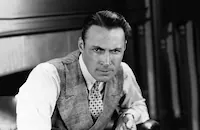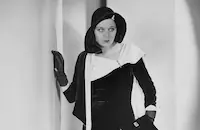The Delightful Rogue

Brief Synopsis
Cast & Crew
Lynn Shores
Rod La Rocque
Rita La Roy
Charles Byer
Ed Brady
Harry Semels
Film Details
Technical Specs

Synopsis
Lastro, a languid Latin who prides himself on his villainy, seizes a yacht and turns pirate on the tropical seas. Wanted for murder, arson, and robbery, Lastro sails into Tapit, where he encounters Junipero, a native leader, and proffers a better photograph than the one on the handbill offering a reward for his capture. In a cafe he meets Nydra, an American dancer sought after by Harry Beall, scion of a wealthy family, and when Lastro becomes interested, his audacity amuses the girl; Lastro flings Beall aside in a skirmish and vanquishes Junipero and his police. Later, Lastro kidnaps Beall, and Nydra comes to plead for her lover's freedom. Lastro agrees but insists that she spend the night in his cabin, and behind locked doors they talk the night away. Beall's indignant attitude at her actions causes Nydra to leave him in disgust and sail away with the pirate.

Director
Lynn Shores
Cast

Rod La Rocque

Rita La Roy
Charles Byer
Ed Brady
Harry Semels
Sam Blum
Bert Moorehouse
Crew

Film Details
Technical Specs

Articles
The Delightful Rogue -
By Frank Miller














